Identify the nuances in human communication.
Robotics & IoT
Empathic response
Even without explicit prompting
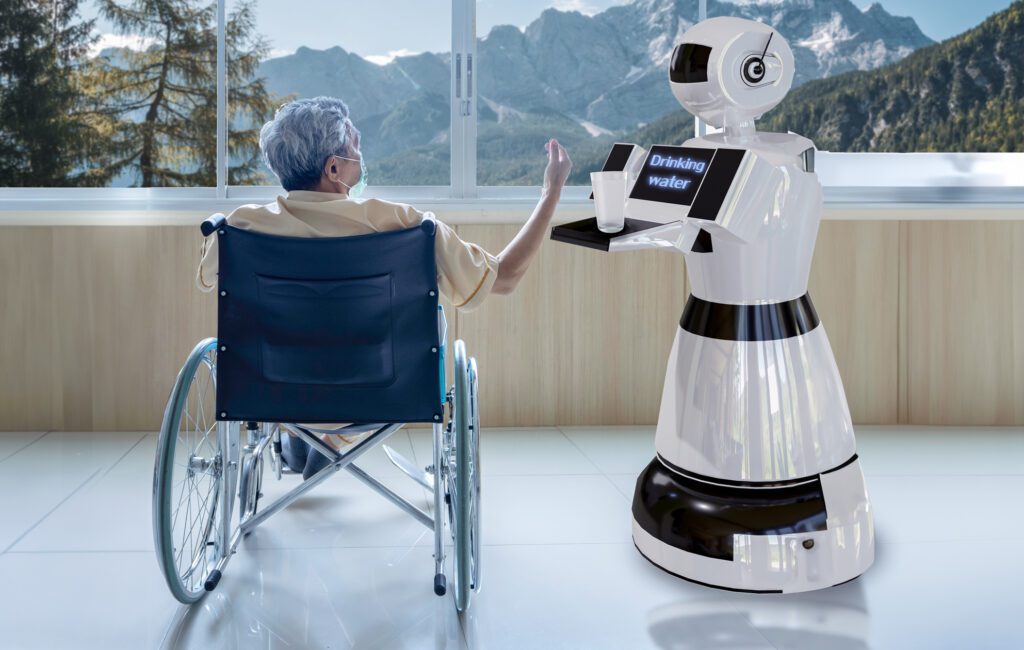

Humans vs. Voice AI
28% more accurate
Intelligent audio analysis is taking human-machine interaction to a new level. Voice analysis, focused on expressive perception, and early symptom detection for future health applications, makes robots a supportive system.
audEERING’s vision is to develop technologies that benefit humans in their everyday lives. This is intended to improve the private sphere, medical care, as well as care for the elderly.
Even for small devices, the responsible Audio AI technology is integrable and ready for a human-like interaction experience.
- Fast measurement of huge data amounts
- Human-like expression perception – or even more accurate
- Additional features to innovate healthcare
Empathy is an important soft skill in socio-affective communication behavior that builds safety and counteracts negative expressions such as sadness and loneliness.
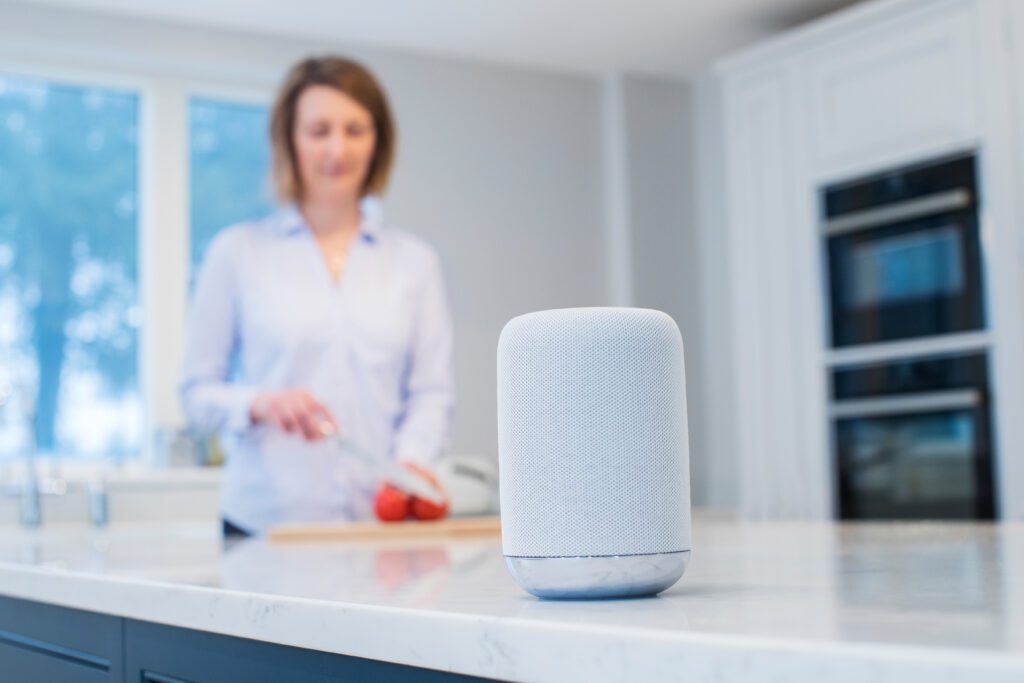
Closing the Valence Gap
A Milestone in Affective Computing
2022, audEERING® announced an important milestone with closing the valence gap in audio-based emotion recognition.
This holds enormous potential in robotics for realising the vision of an assistive machine in people’s everyday lives. Taking human-machine interaction to a whole new level.
Human-machine interaction
more natural-more heartfelt
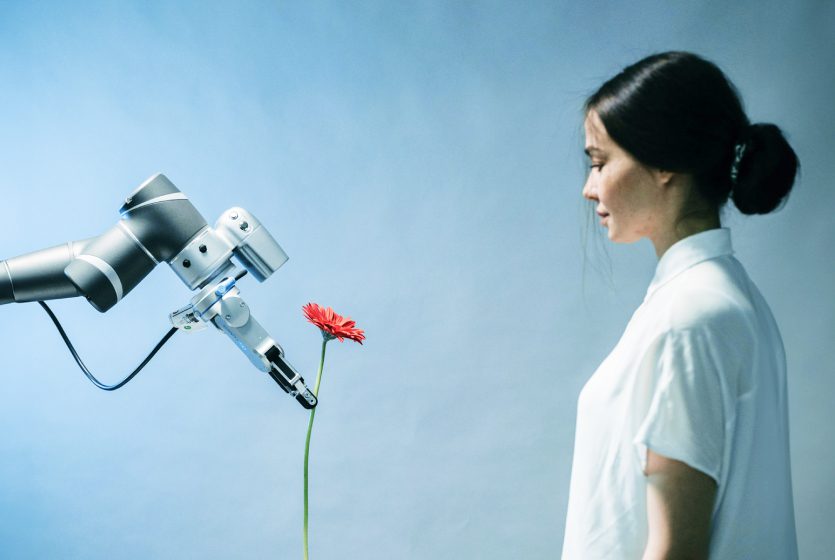
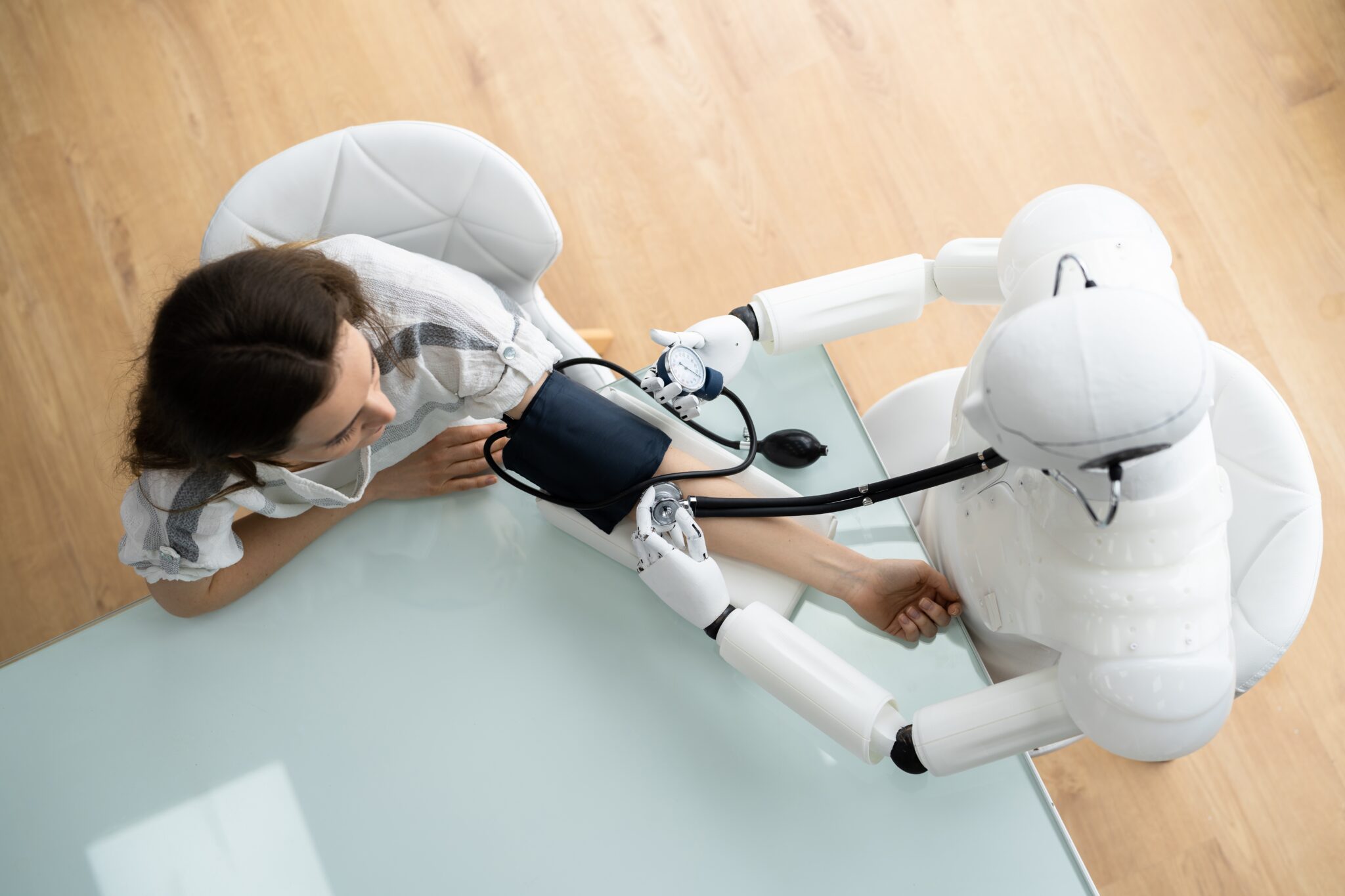
One AI-technology
Several use cases
Audio AI technology opens up a wide range of use cases. The complexity of audio and voice means an enormous potential for adaptation. Based on the analysis of >7,000 acoustic parameters, audEERING’s AI technology provides important insights into the expressive state of the speaker, recognizes acoustic scenes that reveal the context of an interaction, and is also able to analyze what is happening involving more than one person – distinguishing between different speakers, recognizing age and needs.
Our technology can be used in a variety of industries, including healthcare, elder care, education, and entertainment.
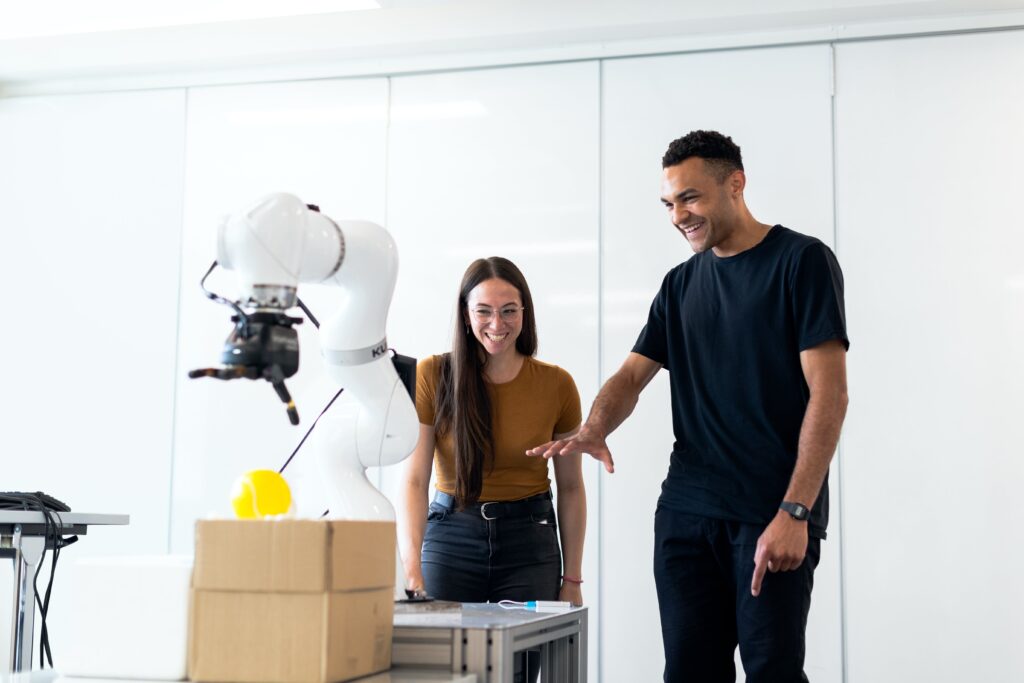
In healthcare, for example, our technology can help robots detect when patients are in distress or experiencing pain, allowing healthcare professionals to provide faster and more effective care. In addition to the analysis of expressed mood, long-term studies are also possible, providing important information for voice biomarkers.
As well as better screening, monitoring and advanced therapy approaches.
In elder care, our technology enables robots to better understand and respond to the heartfelt needs of older adults and can help improve the quality of care and support they receive, while also reducing the burden on human caregivers.
As studies show, older people who do not relate to new technologies are not open to humanoid robotics, but specifically want to develop a sense of competence and trust when interacting with the robot.
Where you prefer non-humanoid robotics, but enjoy the artificial intelligence of innovative robotic systems – this is where audEERING’s voice AI technology can help.
Improved quality of care due to more compassionate interactions reducing the burden on human caregivers.
In education, robots can use our technology to detect when students are struggling or frustrated, offering personalized support and guidance. From another perspective, they can act as a patient learning support to help learn and develop on various topics – recognizing the tone of voice can help to create motivation for the best workflow.
Broadening the teaching possibilities and improving the workflow by enhancing personalized support through improved emotional intelligence.
In entertainment, our technology can help create more immersive and engaging experiences, tailored to the personal needs and preferences of each individual.
Enabling more gaming possibilities, through tailoring the interaction experience to personal needs, while supervising the mood.
Increasing customer satisfaction and improving customer journey through mood adapted services and personalized support.
Overall, our AI-based technology offers a unique value proposition by enabling robots to become empathetically competent and to provide more human-like interactions. For better customer service, support, and care. This leads to increased user satisfaction and more efficient use of robotic technology across multiple industries.

By loading the video, you agree to YouTube's privacy policy.
Learn more
Münchner Runde BR24
Pepper with ChatGPT3
On January 25, 2023, the humanoid robot Pepper, audEERING CEO Dagmar Schuller, Ranga Yogeshwar, Alena Buyx, and Judith Gerlach met on the program “Münchner Runde”.
Pepper, equipped with ChatGPT-3, and its human panelists discussed the topic of “Robots and Artificial Intelligence: How are they changing our lives?” The round was moderated by Christian Nitsche.
Is the use of AI-controlled robots also an ethical question? Dagmar Schuller’s expert answer in the video.
Designed to satisfy
Expression sensitive robots
Our AI-based voice analysis technology is designed to revolutionize the way robots interact with humans. By detecting the meaningful expression of a person’s voice, our technology allows robots to understand and respond to human expressions, creating a more natural and personalized interaction.
The audEER – an empathetically competent and interactive robot – was developed under the leadership of Milenko Saponja.
In addition to tonal analysis, the audEER also analyzes single acoustic parameters and dimensions. Playfully, it moves faster the more active (high arousal) the speech is, and conversely, it moves slowly at low arousal.
The ERIK project
Pepper with empathic competences
To develop the socio-affective communication skills of autistic children, therapy has to focus on that. In the ERIK project a new form of therapy, using a robotic system, is being developed and tested. The use of robots has proven to be beneficial in the therapy of these children.
- Firstly, because a robot is perceived by these children as less complex. Therefore, it is more predictable and less frightening.
- Secondly, because autistic children often show great interest and many strengths in the technical field.
Combined with a therapy app and in cooperation with a therapist, expressive and social skills can be trained.
Collaboration with Hanson RoboticsHumanoid robotics on next level
Hanson Robotics is known worldwide for its humanoid robots – which means that their appearance and social skills are modeled on humans.
Just how far the development of human-like machines has progressed is demonstrated by the most famous robot and the first robot with official citizenship, Sophia Hanson.
In 2018, Sophia spoke to then-Chancellor Angela Merkel and the United Nations, demonstrating how humans and machines can interact.
The collaboration between Hanson Robotics and audEERING aims to further develop Sophia Hanson’s social skills. In the future, Sophia will be able to recognize the expressions of the conversation based on voice analysis and respond empathically.
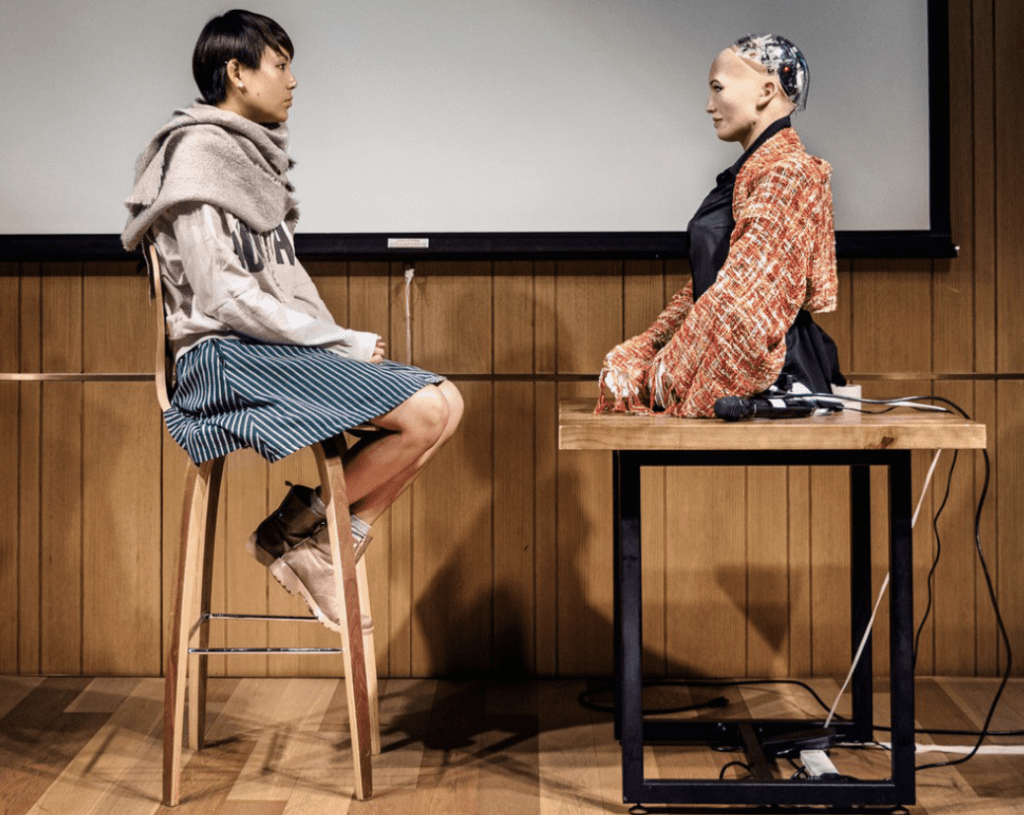

Contact us.
Contact audEERING® now to schedule a demo or discuss how our products and solutions can benefit your organization.
